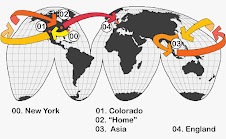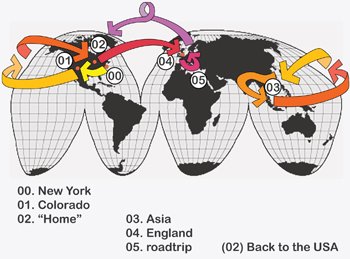We’ve gotten beyond the American v. British English discussions for the most part. Lately, we’ve moved on to distinctly British phrases we find common, but grammatically puzzling (and strangely appealing). They may be northern and they may be technically incorrect- I make no claims other than that we hear them with some frequency. Here are a few worth mentioning:
I am told by my boss to do something at work, but if I have questions, ‘Give us a shout.’ That’s plural; he’s singular. Give us a ring. Give us a hand. These don’t always mean ‘us’. They may mean ‘me’. I don’t completely understand, but I’m glad I know about it.
People don’t have names. They are called something. I used this yesterday at work- ‘I spoke to an engineer called Dillon’- and felt weird. No one noticed.
There’s a particular sentence type that is commonly used, but not by us. It ends in ‘do’ and doesn’t always make complete sense as far as verb to verb agreement goes. Here's a few I've heard this week:
Will you be joining us for drinks? Well, I would do, but I’m not sure I have time.
Can we make a schedule for that? We should do.
Does this folder have a home? It will do.
But what if they refuse it? Oh, they won’t do.
Are you going to wear a jumper? I will do.
Who will take this rubbish home? I can do, but obviously I’d rather not do.
Josh and I are currently in the midst of an informal contest to see who can do this the most, getting it in whenever we can. Who’s gonna win? I will do! Hm. It doesn’t sound right there.
There are 'How are you' and 'What are you up to' and 'How’s it going'. There’s also ‘Are you alright?’ here. Despite its frequency as a first greeting, it catches me off guard every time. It almost seems rude, as if I’m doing something wrong and the inquisitor is trying to head me off before it gets worse or maybe as if I look a mess and the concerned party wants to make sure I’m not dying. What’s even stranger is that I’ve heard ‘fine, thanks’ as a response. But it’s a yes or no question!
Finally, another undeclared contest for Josh and I. Demonstrative adverbs (yes, I had to look that up) commonly go at the end of sentences for simple, exclamatory phrases. This is brilliant, this. Good one, them. Nice steak and ale pie, that. Then and though can also get tacked onto the end of sentences or questions. I’ve gotten an email with this exact sentence: Good one them though. On a side note, a then on the end of a question can easily turn it from American to British in inflection. Shall we get food? Ending high: American. Shall we get food then? Said the same but with the then lowered: British. In fact, when Josh reads this, I just know he’ll say, ‘Good one, that. Should I write the next one then?’
Tuesday, March 10, 2009
Bits and Bobs and Odds and Sods 3
Posted by
megfeen
at
9:00 AM
![]()
Subscribe to:
Post Comments (Atom)


3 comments:
Love this! It's the same where I work. :)
Just heard an advert for a new tv show that had this:
"You know Archie?"
"I should do. He's my husband."
Oddly appealing, yet baffling!
I've noticed those demonstrative adverbs used but I never knew what to call them. For example, instad of saying "hi", people will often say "hi there." I like it.
Post a Comment